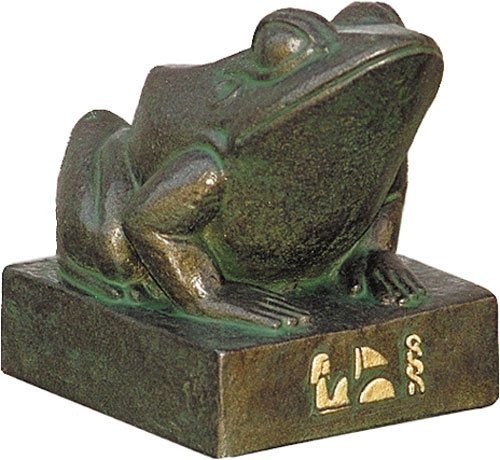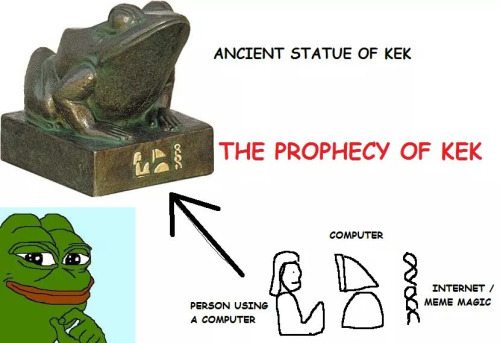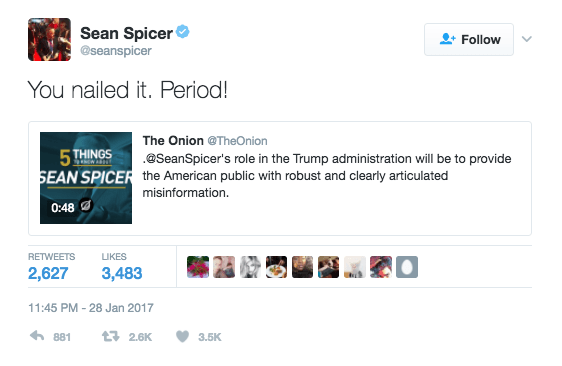Weaponized Irony: A Roundtable on Trolling and Politics
|Thom Bettridge
The figure of the Internet Troll has gone from being an obscure message board phenomenon and source of cyber-bullying to being a bona fide mainstream news topic. Commentators have even gone as far to say that the recently-elected U.S President Donald Trump has “trolled his way to the White House.” Meanwhile, Canadian mosque shooter Alexandre Bissonnette has been described in news reports as a being “troll.” But many questions still remain about the nature of trolling and the motivations of those who participate in it. Is trolling part of a right wing meta-strategy to dominate politics via online snowball effects? Is it the symptom of a post-ironic condition caused by our hyper-mediated environment? It is a mode of media-making that has spun into an ideological orientation? Or is it all or none of the above?
032c’s Thom Bettridge spoke with artists Simon Denny, Matt Goerzen, and Emily Segal about the nature of trolling in the current political environment.
Thom Bettridge: So I wanted to start by asking you guys about what trolling is — where it comes from and whether it has always had the political dimension that has now been ascribed to it in the mainstream.
Simon Denny: This might not be helpful, but I’m copy-pasting something Matt wrote: “Trolling is the act of strategically ambiguating one’s position, through some form of intermediation, to elicit a response that an implied individual or community would otherwise be unlikely, unable, or unwilling to give. The act may be designed to provoke a particular response, or an entirely contingent one. It is typically configured, at minimum, to deliver some form of amusement (‘lulz’) to a troll, their peers, or some other limited audience. This amusement may be an end-in-itself, but it is frequently instrumentalized — by a troll itself, or others in a position to shape interpretation — in accordance with higher order intentions of pedagogy, policing, publicity, or propaganda.”
Matt Goerzen: That’s an expansive definition of trolling I gave in my thesis.
Denny: What do you mean by expansive?
Goerzen: Well, there are many definitions of trolling. At the moment, it seems to mostly refer to a sort of harrassive form of bullying to dominate and steer social media discourse, make certain positions invisible, distract from others. But historically it has referred to a more artful craft, where instead of just drowning out other perspectives by “shitposting” on Twitter, a troll would carefully construct a bait and allow their opponent to sort of initiate their own downfall by taking a bite. About whether trolling has always been political, I think yes in the sense that everything contains some tacit political implications, but explicitly no.
Emily Segal: I think it has always been political, but is now Political.
Denny: The thing that has been sitting in my head that I can’t answer is if trolling has an inherent political position per se, as opposed to just being a tool.
Segal: But what about the Canadian mosque killer — the way the mainstream media called him a troll?
They did? As opposed to calling him a “terrorist”?
Segal: Yes. And it made me think: Okay, the definition of this term has definitely solidified. The lava has cooled.
Goerzen: So apparently he would post very blatant, abusive messages on online social networks. And they call this “trolling.” Some commentators on trolling, like Whitney Phillips, have proposed that this abusive form of “trolling” should more accurately be called…”abuse.”
Segal: For sure, but now trolls are a thing and it’s not unrelated to the “more ambiguous” trolling that came after some of the abusive subcultural kinds.
Goerzen: Right, trolling has become the organizing ritual of an identity. And I think the responsibility of these anonymous, subcultural troll communities needs to be brought into question. Evolving racist and misogynistic memeplexes are defended by most participants as part of a dispassionate, lulzy, joke, or a way of defining a political community committed to free speech, anti-authoritarianism, and political incorrectness, but there are true believers present as well. And if even a tiny minority of people lurking these sites internalize the extremity of these arguments and the sentiments to such a degree that they go and kill people — dismissing it as a joke just offers an alibi, defers responsibility. One hand washes the other.
Denny: So is being a troll about certain meme formats then, which are now being labeled hardcore propaganda just by their very form?
Goerzen: Yes, I think one of the big things that now goes into calling someone a troll is their close connection to certain online subcultures. So it becomes almost an aesthetic disposition. If you tell someone to kill themselves on Twitter and you post an imageboard meme alongside the message, you’re a “troll.”
Denny: It feels like it’s become a “medium is the message” thing, like Marshall McLuhan.
What do you mean by that?
Denny: If we call trolling a medium, then that medium now defines what it means to engage in it as an activity. And it doesn’t matter what your content is, it is just read as being aligned with whatever that “medium” has come to represent. There is also a behavioral logic to it that encourages a certain type of politics to emerge.
In that vein, it seems like it’s hard to tell whether trolls started Trump, or if they just surfed his massive wave of attention.
Goerzen: What you say is interesting. In the Cold War, there were two terms: “useful idiots” and “fellow travellers.” Where individuals in the West, who thought they were operating under their own agenda were understood by the Kremlin, for instance, to actually be performing activities that played into their overarching meta-strategy. Online communities like /pol/ are fond of suggesting that Trump is playing “4D Chess,” basically that their strategy is so advanced that they are able to direct these diverse agendas to their own interest. And I think the situation now is that these trollish cultures understand themselves to be primarily trolling for “lulz,” for the sheer joy of the activity, but in fact there are higher political interests at work subtly directing them in ways that they can benefit from. So whether these trolls are politically interested, or just interested in creating chaos and having fun, they are foot soldiers of a sort.

Segal: I don’t know. I struggle trying to square this “meta-strategy” explanation with the “pure drive towards chaos by all parties” angle. The desire for chaos comes from somewhere else. I think that trolls play on the inherent ambiguity of language.
Goerzen: Absolutely.
Segal: Anywhere where there’s language, there can be trolls. Their drive towards chaos/nonsense is embedded there. In his essay “The Concept of Irony,” Paul de Man writes about Friedrich Schlegel. Matt, you’ve used Poe’s Law in your explanation of trolling –
What is Poe’s Law?
Goerzen: Poe’s Law is the idea that in highly mediated communications environments the
difference between a sincere and parodic expression is essentially null. If the recipient of the message can’t meaningfully parse the intentions of the communicator due to a lack of context or good faith, it favors a sort of pre-emptive ironic detachment, else you get trolled. And I think Trump’s team has weaponised Poe’s Law very effectively.
Segal: In the “The Concept of Irony,” Paul de Man talks about Schlegel’s definition of irony as a permanent parabasis. Parabasis is the moment in the play when the actors pause and the chorus directly addresses or insults the audience, which is very trollish itself. But Schlegel also talks about irony pointing to a kind of authentic speech that’s pure chaos, nonsense, darkness. I don’t know if he said “darkness,” I might be editorializing.
That’s interesting, because the Internet atmosphere of trolling is a space that has a complete detachment from real life, and therefore an inherent ironic detachment.
Segal: It’s post-ironic, though. There’s nothing to detach from.
Goerzen: Definitely, but there is also a latent desire to connect and communicate.
Segal: Yes, that’s important because it makes you feel like a community exists — a community that gets you cashing in your lulz.
I also think it’s worth arguing that trolling is in an extreme but inherent part of a wider ironic condition. For example, everyone hate-watched “Keeping Up with the Kardashians” until it became the most popular show.
Segal: I didn’t hate-watch it. I loved Kim. I wanted to see her. But I think trolling can also be like suspending the moment where you have decided whether you’re hate-watching or love-watching — leaving it undecidable until someone else responds.

Goerzen: I think that’s also super interesting in relation to “Kek,” the imageboard deity personified by Pepe. Imageboard culture is highly anonymous, so memes like Pepe function both as a collective body, intermediating feeling between participants, and also as a site of memorialization, encoding values and narratives. In order to participate in the process of meme-making and iteration, one needs to become fluent in it as both a vocabulary and a history. And so the participating subject needs to speak through a particular emergent lingua franca, using the shibboleths of the community. So these memes in a way become the central figures of the community. The values they convey become the values of the community in aggregate. Chans also have an interesting numerological component that has emerged over time. Each post is numbered and has a special weight given to the content of posts that have “dubs” and “trips” digits in them. And the significance goes up as the number of repeating numbers grows. Tellingly, a post that I believe was 7777777777 predicted Donald Trump’s victory — and it had a Pepe figure attached to it.
Denny: Coincidence? I don’t think so.
Goerzen: So this mythology then emerged that Pepe was actually the manifestation of an Egyptian god named Kek — “Kek” being a derivative of “Lol.” The god Kek is frog-headed and an agent of chaos. The coincidences were so great that they started seeing themselves as emissaries of a chaotic god that had sprung up and chosen them as acolytes, therefore believing that “meme magic is real,” and so forth.
Denny: And that sentiment is so strong.
Goerzen: Certainly people only half-believe this, but participate in it because it is intoxicating and fascinating. But they also clearly do believe in it at least a little bit. And it’s a self-fulfilling prophecy in a way, because the more power ascribed to Pepe, the more power Pepe exercises.
Segal: Pepe is a “hypersigil” of 4chan’s desire to elect Trump — sigils being symbols that get created and animated with people’s wishes, then go off to do their own thing in the universe.
Do you guys think the description of Trump as a troll himself is accurate?
Segal: This question makes me want to lie down on the rug and put something over my eyes.
Goerzen: I mean, just the other day, Sean Spicer retweeted an Onion article that claimed his job was to tell lies for Trump. And he said, “Nailed it.” And so then you have commentators literally spending their entire day trying to determine whether he knew what the article said, whether he was a buffoon, whether he was acknowledging something, etc. And suddenly you have all these people wasting their time trying to parse out intention and significance from a single tweet. Classic trolling.

Considering this — and Poe’s Law — what would you say that “counter-trolling” could look like? It is possible?
Goerzen: Well, there’s that old adage “don’t feed the trolls.” If they aim at a sort of derailment, a distraction from more important concerns, then ignoring them is probably the best bet.
Denny: But you can’t ignore the president.
Goerzen: The idea of a trolling arms race is interesting.
Denny: But that would suggest that trolling is not an activity that inherently contains a right wing bias.
Segal: I don’t think the people in this conversation think that trolling is inherently right wing, do we? It just happens to be very much in service of the right wing.
Denny: And right wing ideas seem to click with it much better than some other ideas.
Goerzen: Just a decade ago, a lot of trolling was based around speaking truth to power.
Denny: That’s certainly where I developed my admiration for it as a practice.
Segal: Anything that exposes the wildness of language can get too wild. But without some of that exposure or exploitation, we’d be lost. No poetry.
But I find it curious — or shocking — that this chaotic disposition towards language would land most of these trolls in the same place. A right wing place.
Goerzen: I think this is a subcultural phenomenon, where a certain community has elevated trolling as not only a tactic, but also as their raison d’être — where they celebrate lulz above all.
But I think that trolling is a negative disposition towards mainstream understandings and ethics that extends beyond the practice of trolling itself. This is why some people who aren’t even bona fide trolls took pleasure in watching Trump, especially in the Republican primary — because he wasn’t “politically correct” and he was making career politicians like Jeb Bush look like robots.
Goerzen: It’s interesting to consider whether trolling is a tactic that is most effective against an ordered system — whether that is a system ordered by ethics, regulations, rules, norms, whatever. But then the question becomes whether trolling itself is becoming or can constitute an ordered system of its own.
That’s THE question, especially in light of what this administration is doing.
Goerzen: This memetic, subcultural development implies an ordering. And I think certain clever political operatives have discovered how to both do their own trolling and direct the existing troll subculture as a tool. The other day I spoke with Rand Waltzman, the former head of DARPA’s SMISC (Social Media in Strategic Communications) program and he called this use of trolling a “cognitive denial of service attack” essentially designed to jam up information channels so no effective debate could proceed.
The thing is, when trolling becomes power, it becomes serious. It is no longer ironic. It is probably no longer even “trolling.”
Goerzen: Something that is lost in in the way trolling is now understood is the idea of fishing. But this is more like shining a flashlight so the fish gather, and then dropping a grenade.
Segal: Lol.
Denny: Seriously lol.
Maybe that’s a good place to end.
Simon Denny is an artist based in Berlin. He represented New Zealand at the Venice Biennale in 2015 with his exhibition “Secret Power” unpacking and contextualising the work of a former NSA illustrator and designer. His exhibition “Blockchain Future States” is on view at the Hammer Projects in Los Angeles until April 23rd.
Matt Goerzen is an artist and researcher based in Canada. His 2016 thesis, “Critical Trolling,” examines the use of trolling in artist and hacker communities as a form of cultural criticism and security research, distinctive from its irreverent and often abusive subcultural forms.
Emily Segal is an artist and brand strategist based in Berlin. She co-founded the trend forecasting group K-HOLE.
Credits
- Interview: Thom Bettridge
